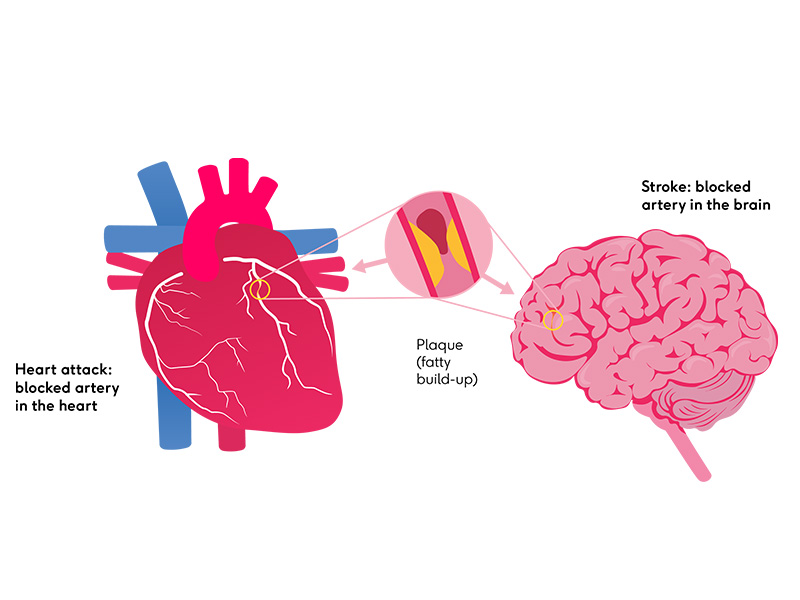What are statins used for?
Statins are medicines that help to reduce your risk of a heart attack or stroke by lowering a fatty substance called cholesterol in your blood.
Cholesterol is made by your body. There are 2 types – ‘good’ HDL (high-density lipoprotein) cholesterol and ‘bad’ non-HDL cholesterol.
If your bad cholesterol is too high, it can increase the risk of fatty material building up on the walls of blood vessels called arteries and forming a plaque.
If a plaque bursts or breaks, a clot can form around it and block the artery.
If this happens in an artery supplying blood to your heart, it will cause a heart attack. And if it happens in an artery supplying blood to your brain, it will cause a stroke.
High levels of bad cholesterol are associated with 1 in 5 deaths from heart and circulatory diseases in the UK.

Want to get fit and healthy?
Sign up to our fortnightly Heart Matters newsletter to receive healthy recipes, new activity ideas, and expert tips for managing your health. Joining is free and takes 2 minutes.
I’d like to sign-up
How do statins work?
Statins lower high levels of bad cholesterol by blocking an enzyme called HMG-CoA reductase, which your liver needs to produce cholesterol. In some cases, statins may also increase good (HDL) cholesterol levels too.
Lowering your cholesterol levels cannot remove fatty material that has already built up in your arteries, but it can stop more building up.
Even if you do not have high cholesterol, you may be given a statin if you’re at risk of having a heart attack or stroke, or you’ve already had one.
That’s because statins can lower the risk of existing plaques breaking off and forming a blood clot.
What happens if you stop taking statins?
If your cholesterol levels go down, or you experience side effects, you may be wondering if you can come off statins.
However, if you do stop taking them, your bad cholesterol levels can begin to rise again.
This can cause more fatty material to build up and increase your risk of heart or circulatory diseases.
A study published in 2021 in the journal JAMA Network Open of 67,418 people in Denmark aged 75 or older who had taken a statin for at least 5 years found that people who stopped taking them were more at risk of a heart attack and stroke.
Over an average of 5.5 years, people who had not had a heart attack or stroke stopped taking statins were 37 per cent more likely to have a heart attack, 33 per cent more likely to have a stroke, and 43 per cent more likely to die from either than those who continued to take them.
If you are experiencing side effects, speak to your doctor about changing which statin you’re on, taking a lower dose, or trying another cholesterol-lowering medicine to lower your cholesterol levels.
What to read next...








